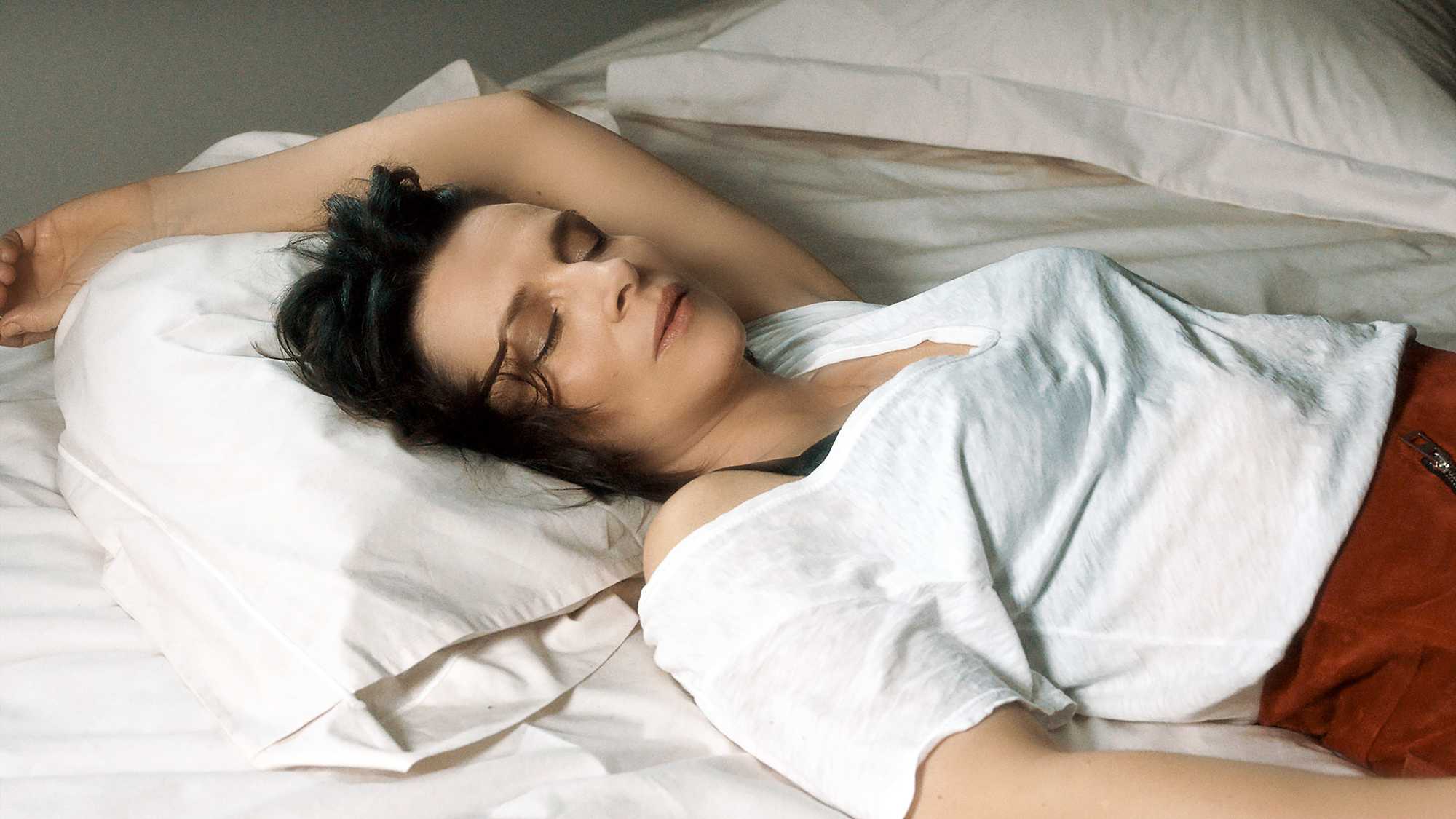Juliette Binoche lights up every frame of Claire Denis’ frank and rueful dramedy of romantic hope springing eternal, written in collaboration with the controversially confessional novelist and playwright Christine Angot.

An exquisite romantic comedy whose laughs are sad and whose sadness is funny.
Screened as part of NZIFF 2017
Let the Sunshine In 2017
Un beau soleil interieur
A mercurial Juliette Binoche absorbs our attention through every moment of this unexpected foray into romantic dramedy by the great French director Claire Denis. This is comedy in a specifically French literary mode, written by Denis in collaboration with the novelist and playwright Christine Angot. A leading light of the ‘autofiction’ movement, Angot is famous for the frankness with which she has placed her own emotional life on the printed page.
Binoche plays the Angot surrogate, Isabelle, a Parisian artist, recently divorced from the father of her ten-year-old daughter. Alone and unleashed, she is undaunted in her yearning to connect sexually and romantically with a succession of men who, one way or another, come on to her. (Every actor in a Denis film leaves their mark, and each of Isabelle’s suitors carries his own peculiar brand of self-importance.)
There’s wry comedy in Isabelle’s impatience to cut to the unspoken intent in their blandishments, though the delight of consummation – so empathetically evoked by Denis, one of the cinema’s great sensualists – is likely to be followed by bemusement or dismay until she rallies for the next encounter.
“Binoche has gone from strength to strength in recent years; still, if she has ever been more radiant or effortlessly expressive on screen than she is here, the example is not immediately coming to mind. And Denis, whose narratives can be daringly free-associative, has structured Let the Sunshine In elegantly and intuitively, as a series of richly human encounters that flow, meander and pulse with life.” — Justin Chang, LA Times